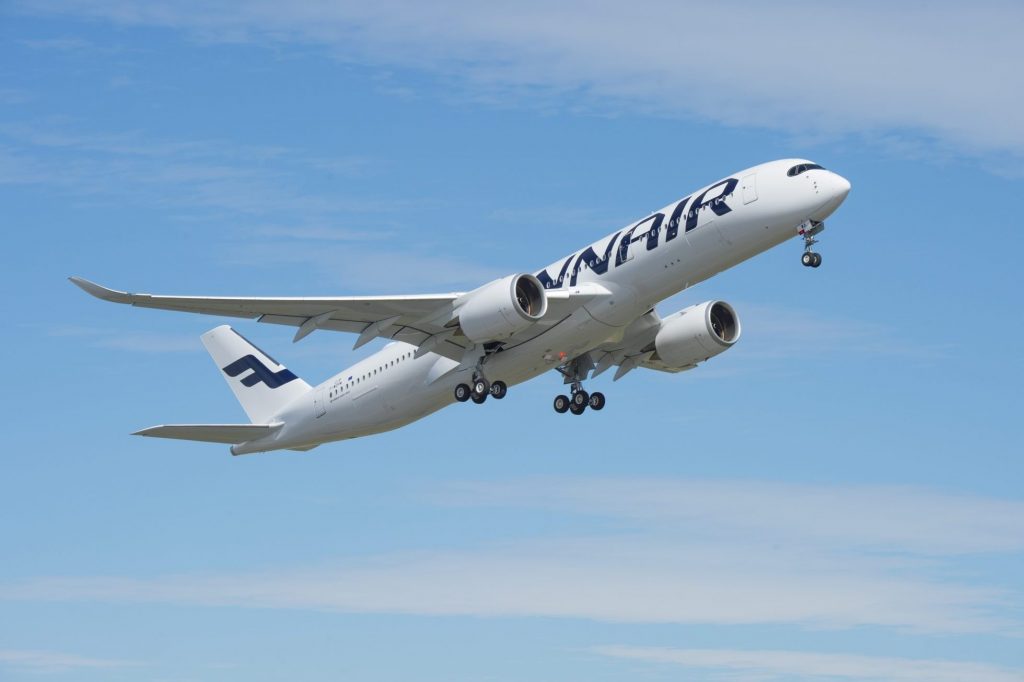Skift Take
Flight shaming as a concept is now well established, and airlines are certainly under much more pressure to showcase their green credentials. The impact on passenger numbers, however, is so far limited.
The flight shaming movement might have taken root in parts of Europe, but not all airlines are seeing an impact.
Activists like 16-year-old Greta Thunberg have helped propel the role of aviation in climate change to the top of the political agenda. Consumer behavior, however, can lag behind and at Nordic airline Finnair, there has been no shift, yet.
“There are many questions and customers are very interested about how to make aviation more sustainable. And we are definitely working on that one all the time. But as you see from our traffic figures a number of passengers, we don’t see any impact on our traffic figures or number of passengers coming out of the flight shame [movement],” CEO Topi Manner told analysts on Tuesday, following the release of the carrier’s third-quarter results.
Manner pointed to the passenger number rise of 12 percent and called the latest quarterly numbers a “record high for us.”
“[As] such, we are one of the fastest-growing, if not the fastest-growing, pan-European airlines for the time being. So I guess that tells the story. But at the same time, we do realize that we have an obligation to work with more sustainable aviation, both short and long-term, and that we will be certainly doing,” he added.
Finnair recently announced it was joining a regional body help develop electric aircraft. (Although with these types of initiatives it is worth mentioning that they are likely decades away from having any real impact.)
Over the past year, airlines have been falling over themselves to proclaim their green credentials, mostly this has come in efficiency gains or carbon offsets. This has come at the same time as governments across Europe have moved to introduce taxes on flights.
Meanwhile, rail travel — as a transport alternative — is having a moment in certain markets putting particular pressure on domestic and some short-haul routes.
Thomas Cook, one of the few companies to say that the “environmental movement against air travel” was hurting its business, went into liquidation in September, indicating that its problems, at least in the short term may have been elsewhere. In fact its Nordics division is still running.
Third-Quarter Results
Finnair’s third-quarter, which encompassed the European summer season, was a mixed bag with revenue up but profit down.
While the carrier enjoyed an improved performance out of Europe, Asia was much more challenging, particularly in Hong Kong where there was lower demand. Anti-government protests have rocked the Chinese special administrative region over the past few months, damaging travel demand.
“When we look at the revenue development by category, the passenger revenue developed, all in all, pretty much according to our expectations. The strength of Europe was the positive, and then the Hong Kong was negative on that one,” Manner said.
Overall revenue at Finnair increased 8 percent to $969 million (€870 million) with pre-tax profit down 18 percent to $80 million (€72 million).
The Daily Newsletter
Our daily coverage of the global travel industry. Written by editors and analysts from across Skift’s brands.
Have a confidential tip for Skift? Get in touch
Tags: asia, climate change, earnings, environment, flight shaming, hong kong
Photo credit: A Finnair A350. The airline grew its passenger numbers in Q3. Airbus
